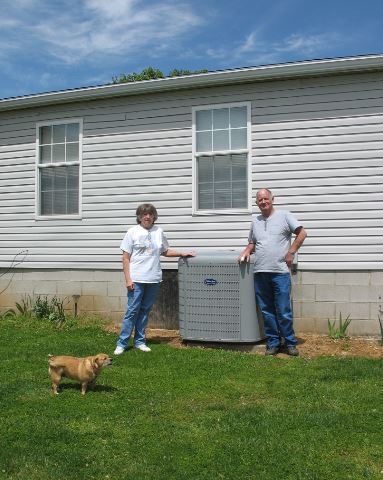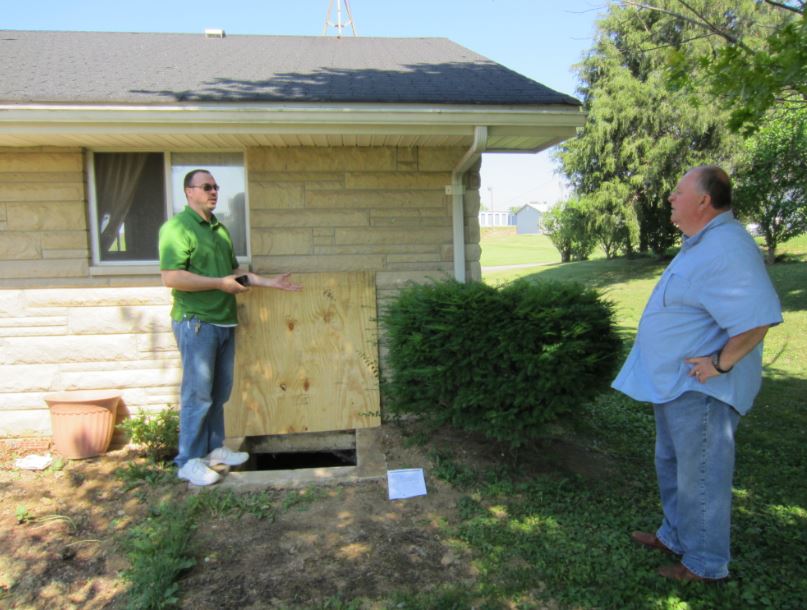Nearly all Eastern Kentucky counties are defined as economically distressed by the Appalachian Regional Commission, and while economic conditions have improved, the region still lags behind as deeply-rooted economic conditions marked by long-term unemployment, persistent poverty, and a lack of diverse economic drivers continue. Today, 42 of the 54 Kentucky counties in the Mountain Association’s service region are classified as persistent poverty counties. Basic infrastructure such as transportation, water, housing, and telecommunications also lag well behind, further compounding extreme economic distress.

With 67 percent of homes in Eastern Kentucky built before 1990, and 25 percent being mobile homes, the region has an aging and highly inefficient housing stock. The Mountain Association developed an energy efficiency program more than a decade ago to help residents save money and make their homes healthier places to live through improved indoor air quality. Recent studies show that 50 percent of air breathed in a home first travels through the crawl space. In an area with higher rates of black lung, allergy, asthma, cancer and other respiratory diseases, a healthy home is especially important.
The Mountain Association created the How$martKY program to address the primary barrier to investment in improvements by homeowners, small businesses and nonprofits: Upfront payment. In this demonstration program, customers pay for efficiency upgrades each month out of the average energy savings generated by the retrofit. This allows utilities to put energy efficiency within reach of those who need it the most, but have previously been unable to make the upfront investment to start saving money on their energy bills. Though we piloted the program with four partner electric cooperatives – Big Sandy RECC, Fleming-Mason Energy, Grayson RECC and Jackson Energy – to offer the on-bill financing option to their customers, we are now allowed by the Kentucky Public Service Commission (PSC) to partner with any RECC in the state.
The pilot co-ops submitted their application to the PSC for the “tariffed” on-bill program, which ties payments to the meter rather than the individual utility customer. We adapted this program design with the co-ops from precedents first developed through the PAYS® system and the How$mart® program in Kansas.
We also worked with several Fahe member organizations that build affordable, quality housing in Eastern Kentucky through another program called the Appalachia Heat Squad. Appalachia Heat Squad provides home energy audits and retrofits throughout Eastern Kentucky.

“[We] put people in homes that normally wouldn’t be homeowners, but if they can’t afford their power bill, then what are you accomplishing?” Frank Morris from Housing Development Alliance in Hazard said, describing the importance of this energy efficiency program.
Morris said he loves helping people improve their homes and their health through his program. For example, Morris said in one case, “An 80-year-old woman was in a nice house, but her hot water heater and her furnace were dumping carbon monoxide into the air because the [exhaust] pipe was completely rusted and the furnace [exhaust] pipe wasn’t even attached.”
COAP, a housing non-profit based in Harlan, Kentucky, also said the Appalachia Heat Squad results are making a huge difference for their customers. Program Manager Randall Howard describes how one homeowners bill was cut in half, and their life tremendously improved.
“We went in, and the home didn’t have insulation under the floor, and the roof was leaking. We put a new roof on, insulation under the floor, and a new heat pump,” Howard said. “I had to go back later to test everything out. I walked in and there’s an 80-year-old man. He stood up, walked over to me, and gave me a hug. He said, ‘We’ve been here 15 years and I’ve never been as comfortable as we are now. You’ve made this house better, so much more comfortable.’”
The Mountain Association provides training for Appalachia Heat Squad managers through our New Energy internship program. In this way, we not only support new jobs, savings, and healthier homes, we are also finding that improving an individual’s home can open doors to many other improvements, including their individual health, personal pride and well-being. These elements are critical to building a new economy that works for everyone.





